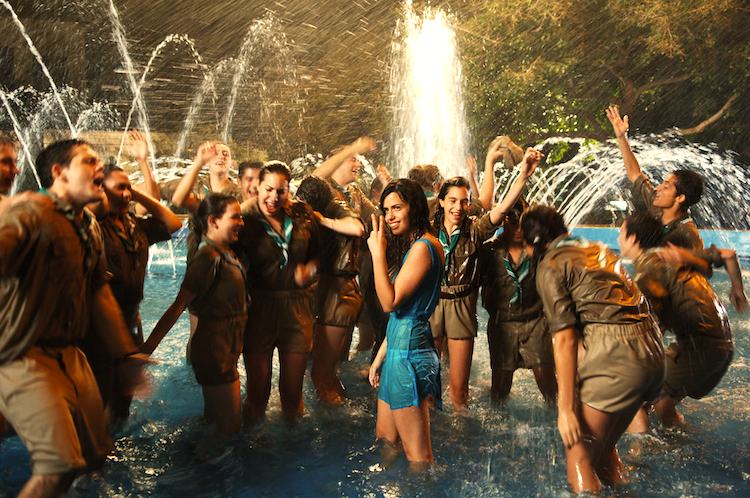By Joe Bendel. Would you buy a second-hand heart from this man? Yankele Bride genuinely wants to make love connections, even for those who cannot afford to pay. Of course, the dodgy contraband in the storeroom is another question altogether. 1968 proves to be a tumultuous year for Bride and his adolescent assistant in Avi Nesher’s The Matchmaker, one of the highlights of the 2011 Israel Film Festival in New York.
Bride was literally scarred by his time in the concentration camps, yet he still believes in love. He is a realist though, telling his clients he “gets them what they need, not what they want.” Despite his many dubious enterprises, he scours the neighborhoods looking for the marginalized in need of his match-making help. That is how Arik Burstein initially encounters him. Fatefully, Burstein’s attempt at a practical joke at Bride’s expense backfires when it turns out he is a long lost classmate of his Romanian émigré father, Yossi. Before he knows it, young Burstein is working as Bride’s assistant, which largely involves trailing prospective clients to make sure they are on the up-and-up.
Although romance is Bride’s business of choice, he must settle for a close but chaste friendship with Clara, the love of his life, who remains profoundly haunted by her Holocaust experiences. In contrast, Burstein struggles against his attraction to Tamara, his best friend Benny Abadi’s sultry hippy cousin, who finds herself spending her summer with the Jewish Iraqi family.
Matchmaker is filled with colorful characters and coming of age rites, but it does not happen in a vacuum. While Nesher keeps the tone wistful and nostalgic, the ever-present reality of war and terrorism periodically punctuates the proceedings. They also serve as a reminder that Bride (as well as Burstein’s father and even Clara) continue to choose life, despite the horrors they witnessed. Yet it is the complex legacy of the Holocaust that is truly ever present, as the first first-generation Israelis (like Burstein) struggle to come to terms with implications of their parents’ tragic history. Nesher’s sharply written adaptation of Amir Gutfreund’s novel shrewdly examines this generation gap, with wit and sympathy.
Bride is easily one of the richest characters to hit screens in sometime. He might be a sentimental romantic, but he’s one shrewd customer. ‘Misunderestimate’ him at your peril. No mere gentle giant, Adir Miller conveys a sense of his cunning and hardness, as well as his vulnerability.
Like Miller, Bat-El Papura also transcends physical stereotypes as the (not so) surprisingly smart and sophisticated Sylvia, one of the “Seven Dwarves” who own the Bollywood cinema Bride patronizes, as well as an impatient client. While Yossi Burstein is a relatively small part in terms of overall screen time, Dov Navon nails an unforgettable speech at a critical juncture that largely defines the film. As for young Burstein, Tuval Shafir comes across a bit petulant at times, which at least makes him a convincing teenager.
Haifa’s seedy “low-rent” district probably never looked as picturesque as it does through Michel Abramowicz’s lens. Indeed, it is quite an artful package, featuring original music composed by the great Philippe Sarde, scoring his first Israeli production here. Both challenging and moving, it is a deeply satisfying, bittersweet film. Highly recommended, Matchmaker screens again this Wednesday (5/11) and Sunday (5/15) at the 25th Israel Film Festival.
Posted on May 10th, 2011 at 10:06am.

One thought on “LFM Review: The Matchmaker @ The Israel Film Festival in New York”
Comments are closed.